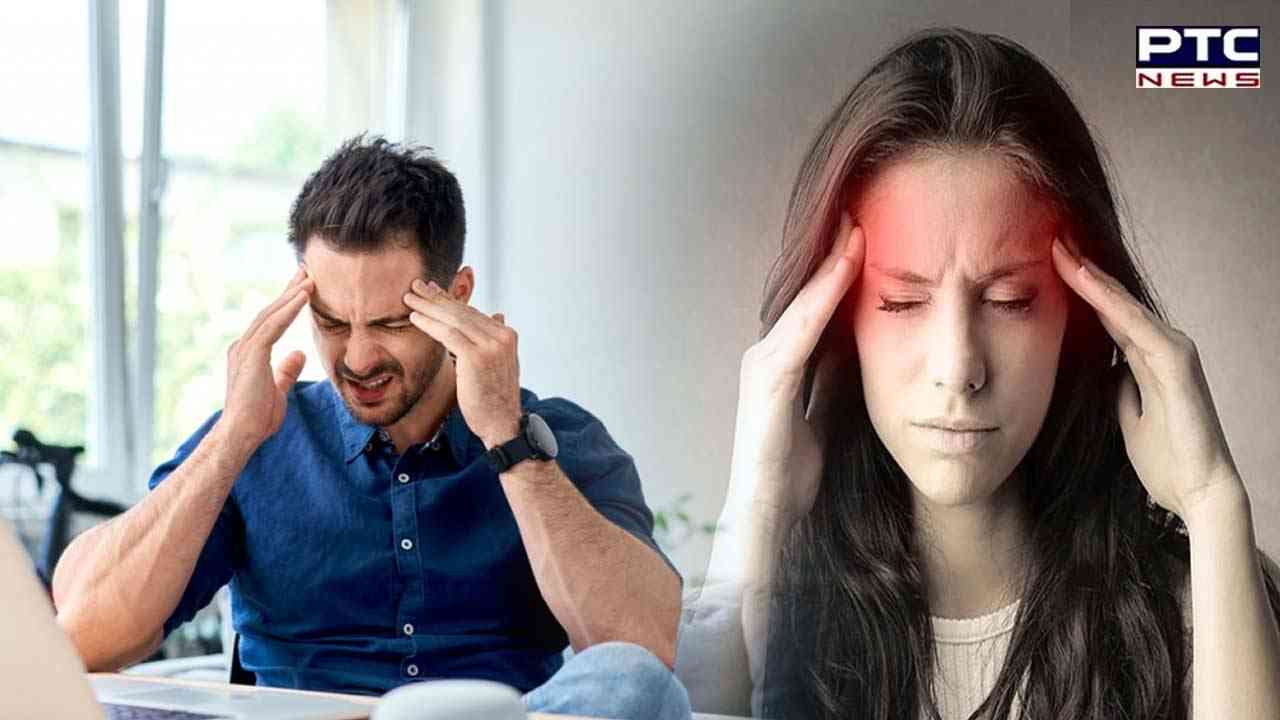

Migraines and anxiety linked? Causes, symptoms and effective treatments
PTC Web Desk: If you frequently suffer from migraine attacks, it’s important to understand their close connection with anxiety disorders. According to medical experts, the relationship is bidirectional, meaning each condition can raise the risk of developing the other. Research shows that more than half of individuals with migraines also experience some form of anxiety disorder, including generalised anxiety disorder (GAD) or panic disorder.
The role of serotonin in both conditions
Doctors emphasise that low serotonin levels—a key hormone that regulates mood and pain perception—are often linked to both migraines and anxiety. This imbalance affects not only mental health but also the autonomic nervous system, which controls functions like heart rate, digestion, and blood pressure. This means when anxiety levels spike due to chronic stress, it can lead directly to severe migraine episodes.
Why anxiety triggers migraine attacks
Anxiety causes various physiological changes that may directly trigger or worsen migraines. Stress hormones like cortisol are released during periods of heightened anxiety, impacting the brain in several ways:
Muscle tension: Tightness and pain in the neck and shoulders are common precursors to migraine.
Reduced blood flow: Stress constricts blood vessels, leading to less oxygen reaching the brain—often a migraine trigger.
Sleep disturbances: Anxiety disrupts sleep patterns, making individuals more vulnerable to migraine attacks.
Persistent worry: Ongoing mental stress creates a feedback loop, increasing both anxiety and the frequency of migraines.
How migraines contribute to anxiety disorders
Chronic migraine sufferers often experience a heavy emotional and psychological burden. This can lead to long-term anxiety and panic, especially when migraine attacks interfere with daily life. Symptoms like nausea, aura, and light sensitivity can lead to fear and concern about one’s overall health.
Disruption of routines at work or in social life due to frequent migraines can cause increased stress and emotional strain. Social withdrawal becomes common as individuals try to avoid environments that could trigger attacks, leading to isolation and heightened anxiety.
Effective treatments for both migraine and anxiety
Fortunately, there are several treatments that address both conditions simultaneously: Doctors may prescribe medications that target both migraine pain and anxiety symptoms.
Cognitive Behavioral Therapy (CBT): This structured talk therapy helps people reframe negative thoughts and manage stress more effectively.
Biofeedback therapy: Teaches individuals to control physical functions such as muscle tension, helping to minimise both anxiety and migraine triggers.
Relaxation techniques: Practices such as deep breathing, guided imagery, and progressive muscle relaxation offer significant relief.
Lifestyle changes to reduce migraine and anxiety
Experts strongly recommend incorporating the following daily habits to manage symptoms:
Regular exercise to boost mood and regulate hormones.
Consistent sleep schedule to promote neurological and emotional stability.
Balanced diet rich in nutrients that support brain and hormonal health.
Stress-reduction activities such as yoga, meditation, journaling, or spending time in nature.
- With inputs from agencies
